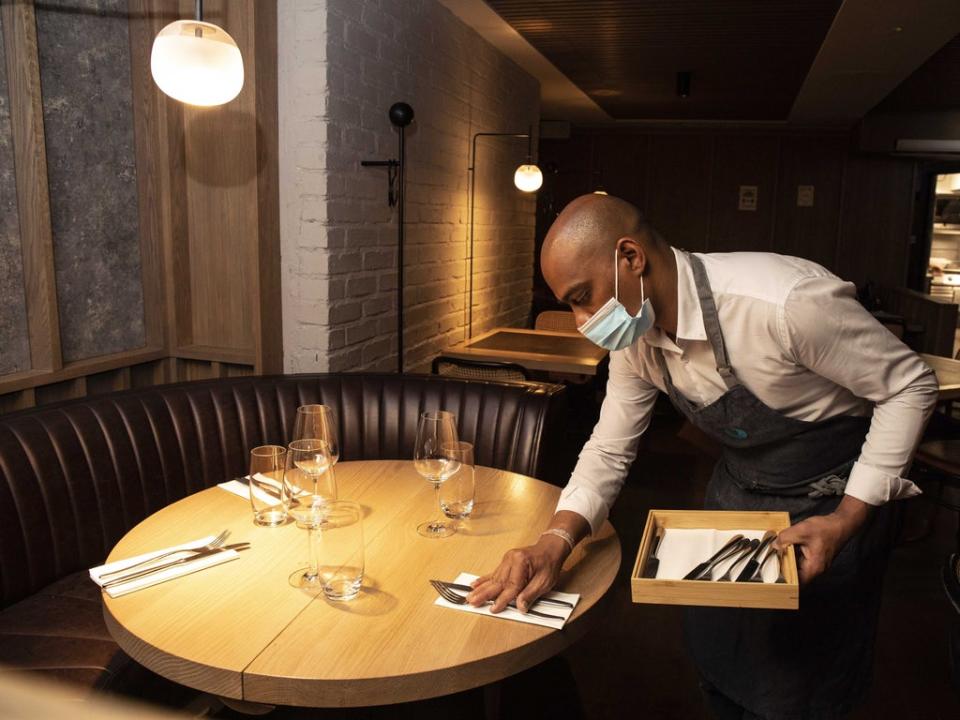Sharp rise in businesses that struggle to find staff

The proportion of businesses who said it has become harder to find staff rocketed by nearly half between early and late August.
At the end of the month 13% of businesses that were trading reported that vacancies had been more difficult to fill in the last month compared to how it normally is this time of year.
It was a rise from 9% earlier in August, according to the most recent data from the Office for National Statistics (ONS).
For weeks companies have been reporting difficulties in getting staff to fill the jobs they need doing.
It comes as around two million people are estimated to have fallen out of the workforce during the pandemic.
On Wednesday Bank of England governor Andrew Bailey said that many of these people were young, had simply continued in education and would enter the workforce eventually.
However the other big group of missing workers are older, and may have decided to hang up their boots.

The ONS data show the biggest gaps in the accommodation and food service sector, where 30% of businesses reported that vacancies were more difficult to fill than normal.
Half of construction industry companies said that prices for materials, good or services have been rising more in the last two weeks than normal.
Around a quarter of UK businesses across all industries reported the same.
However, businesses are still recovering from the pandemic’s ravages.
The ONS said that 28% of companies had told it their turnover had decreased compared to normal times, down from 30% two weeks earlier.
A little over half reported no effect on turnover compared to normal, while 7% reported it was higher than usual.

 Yahoo Finance
Yahoo Finance 